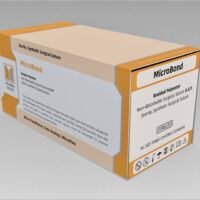How is the autoimmune diet different from the paleo diet?

If you are exploring nutritional strategies to improve health, you may have heard of the Paleo diet and the Autoimmune Diet. Both have gained popularity for their potential health benefits, but they serve different purposes and follow distinct rules. Understanding these differences can help you make informed decisions about which approach is best for your body, especially if you are dealing with autoimmune conditions.
Understanding the Paleo Diet
The Paleo diet, often called the “caveman diet,” focuses on eating foods that were available to our hunter-gatherer ancestors. It emphasizes whole, unprocessed foods, including lean meats, fish, vegetables, fruits, nuts, and seeds. The diet excludes processed foods, refined sugars, dairy, legumes, and grains.
The main goal of the Paleo diet is to reduce inflammation, support metabolic health, and promote weight management. Many people choose this diet to increase energy levels, improve gut health, and maintain lean muscle mass. For those looking to supplement their protein intake naturally, a Natural Protein Powder derived from grass-fed sources or collagen can complement the Paleo diet without introducing artificial additives or allergens.
Understanding the Autoimmune Diet
The Autoimmune Diet, often called the Autoimmune Protocol (AIP) diet, is a stricter version of the Paleo diet. It was specifically designed for people with autoimmune conditions, such as Hashimoto’s thyroiditis, rheumatoid arthritis, or lupus. The goal of the Autoimmune Diet is to reduce inflammation, calm the immune system, and prevent autoimmune flare-ups by eliminating foods that may trigger immune reactions.
Unlike the Paleo diet, the Autoimmune Diet removes additional foods beyond grains, legumes, and dairy. These include eggs, nightshade vegetables (like tomatoes, peppers, and eggplants), nuts, seeds, and certain spices. The diet also encourages the consumption of nutrient-dense foods, such as organ meats, bone broth, and fermented vegetables, which help support gut health and immune regulation. For protein supplementation, a Natural Protein Powder that is free from potential allergens can be an ideal addition, especially for those who need to maintain protein intake without consuming restricted foods.
Key Differences Between the Autoimmune Diet and Paleo Diet
While the Autoimmune Diet and the Paleo diet share some principles, there are several critical differences:
- Purpose and Focus
The Paleo diet primarily aims at overall health and wellness, weight management, and reducing chronic inflammation. In contrast, the Autoimmune Diet targets individuals with autoimmune disorders. Its focus is on reducing immune system triggers and supporting long-term remission from autoimmune symptoms. - Food Restrictions
Both diets avoid processed foods, refined sugars, and grains. However, the Autoimmune Diet goes further by removing eggs, nuts, seeds, nightshades, and sometimes even certain types of seafood or spices. This stricter elimination phase helps pinpoint potential food triggers for autoimmune reactions. - Nutrient Density
The Autoimmune Diet emphasizes nutrient-rich foods that support immune and gut health. This includes organ meats, bone broth, collagen, and fermented vegetables. While the Paleo diet encourages whole foods, it does not prioritize these specific nutrient-dense options to the same extent. Incorporating a Natural Protein Powder can help fill nutritional gaps in both diets, particularly in the Autoimmune Diet, where protein sources may be more limited. - Phases of the Diet
The Autoimmune Diet usually involves a strict elimination phase followed by a careful reintroduction phase. This systematic approach helps individuals identify foods that may provoke symptoms. The Paleo diet generally does not include reintroduction phases or systematic elimination beyond the basic food restrictions. - Impact on Lifestyle
The Autoimmune Diet can be more challenging to follow due to its strict rules and focus on minimizing immune triggers. Meal planning and food sourcing often require more effort, especially when avoiding nightshades, nuts, and seeds. The Paleo diet, while still restrictive compared to a standard Western diet, is more flexible and easier to incorporate into daily life.
Why Consider a Natural Protein Powder?
Both diets emphasize whole foods and high-quality protein sources, but sometimes it can be challenging to meet protein needs through diet alone. This is particularly true on the Autoimmune Diet, where common protein options like eggs, nuts, and seeds are restricted.
A Natural Protein Powder can provide a convenient and safe protein source that aligns with dietary guidelines. Look for powders made from collagen, grass-fed whey (if tolerated), or plant-based options that avoid allergens. These powders can help maintain muscle mass, support immune health, and make it easier to meet daily protein requirements without compromising the diet’s rules.
Benefits of Choosing the Right Diet
Both the Paleo and Autoimmune diets offer potential benefits, depending on your health goals. The Paleo diet may support weight management, energy levels, and overall wellness. The Autoimmune Diet can help reduce inflammation, identify food sensitivities, and support the body’s natural healing processes.
When selecting a diet, it’s essential to consider your personal health needs, lifestyle, and any medical conditions. Those with autoimmune conditions may benefit more from the structured, elimination-based approach of the Autoimmune Diet, while individuals seeking general wellness may prefer the more flexible Paleo diet. Using tools like a Natural Protein Powder can enhance both diets by ensuring adequate nutrition while respecting dietary restrictions.
Conclusion
In summary, the Autoimmune Diet and the Paleo diet share some similarities, but they differ significantly in purpose, food restrictions, and approach. The Autoimmune Diet is a specialized version of Paleo that focuses on immune regulation and inflammation reduction, often requiring a stricter elimination of potential triggers. Meanwhile, the Paleo diet emphasizes overall health through whole, unprocessed foods with fewer restrictions.









